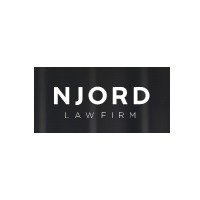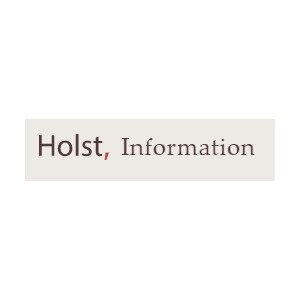Best Sanctions & Export Controls Lawyers in Copenhagen
Share your needs with us, get contacted by law firms.
Free. Takes 2 min.
List of the best lawyers in Copenhagen, Denmark
About Sanctions & Export Controls Law in Copenhagen, Denmark
Sanctions and export controls are crucial components of Denmark's legal framework to regulate the movement of goods, technology, services, and funds, especially those that may have military or dual-use applications. In Copenhagen, these laws are enforced to comply with Denmark's national interests, as well as its commitments under European Union and United Nations regulations. They directly affect businesses, organizations, and individuals involved in the trade or transfer of goods and technology. The legal landscape is complex due to frequent updates, cross-border implications, and compliance with international obligations.
Why You May Need a Lawyer
Handling sanctions and export controls issues in Copenhagen can be challenging due to the technical nature of the law and the serious consequences of non-compliance. Legal advice is often necessary for:
- Businesses exporting goods, technology, or services outside Denmark or the EU
- Companies manufacturing or dealing in dual-use items (civil and military applications)
- Organizations involved in international financial transactions
- Individuals or companies seeking clarification on whether their activities are subject to sanctions
- Responding to investigations or enforcement actions related to sanction breaches
- Applying for export licenses or exemptions
- Developing internal compliance programs and training staff
- Mergers, acquisitions, or partnerships where sanctions exposure must be assessed
A lawyer ensures compliance, helps minimize risks, and can represent you during administrative proceedings or investigations.
Local Laws Overview
The primary framework for sanctions and export controls in Denmark arises from both national laws and the country’s obligations as an EU Member State. Key aspects include:
- The EU Common Foreign and Security Policy, which Denmark implements directly - these determine sanctions regimes against certain countries, individuals, or entities
- The Danish Act on Dual-Use Goods controls the export, transfer, brokering, and transit of goods, software, and technology with both civilian and military uses
- National legislation and EU regulations restrict certain types of exports, financial transactions, and provision of services, especially regarding arms, dual-use items, and sensitive technologies
- Violations can result in significant criminal and administrative penalties, including fines and imprisonment
- All Danish businesses, research institutions, and individuals must assess whether their activities are affected by sanction lists or export control restrictions
- Export control licenses are managed by the Danish Business Authority, which also provides guidance and resources
Frequently Asked Questions
What are export controls?
Export controls regulate the transfer of certain goods, technologies, and services to foreign countries, aiming to prevent misuse for military or harmful purposes.
Who enforces export controls and sanctions in Denmark?
The Danish Business Authority enforces export controls, while customs and police authorities may assist with investigations and enforcement actions. Sanctions follow EU and UN legal frameworks, which Denmark implements directly.
How do I know if my product is subject to export controls?
You should consult the Danish export control lists and the EU dual-use list, or seek legal advice. Items with military, nuclear or potential dual-use applications may require authorization before export or transfer.
What are the penalties for violations?
Penalties for breaches include administrative fines, criminal charges, or imprisonment, depending on the seriousness of the offense and whether it was intentional or negligent.
Are there specific sanctions in place that my business should be aware of?
Yes. The EU regularly updates sanctions lists targeting certain countries, organizations, and individuals. Danish entities must ensure they are not engaging in prohibited transactions.
Do I need a license to export goods outside the EU?
Many goods require an export license, especially those listed as military or dual-use. You must apply through the Danish Business Authority or other relevant agencies.
Can individuals be held liable for breaches?
Yes. Both companies and individuals, including directors and employees, may be held liable for failing to comply with applicable sanctions and export controls.
How often do sanctions and export control laws change?
Updates happen frequently, especially due to geopolitical events. It is essential to stay informed and regularly check for new laws or amendments.
Is legal advice mandatory before engaging in export activities?
It is not mandatory but strongly recommended. Proper legal guidance can prevent compliance failures and mitigate risks.
What should I do if I am investigated for a potential sanction or export control breach?
Contact a lawyer immediately, cooperate with authorities, and compile all relevant documents. Do not make statements without consulting legal counsel.
Additional Resources
For those seeking further information on sanctions and export controls in Copenhagen, consider consulting the following:
- The Danish Business Authority - responsible for export control licensing and guidance
- The Danish Ministry of Foreign Affairs - provides updates on international sanctions implemented by Denmark
- Danish Customs Agency - for border and customs-related control and enforcement
- The European Commission’s Sanctions and Dual-Use division - for EU-wide regulations
- Trade or industry associations that offer compliance workshops and updates
- Legal professionals specializing in international trade and sanctions law
Next Steps
If you are unsure whether your activities fall under sanctions or export controls regulations, or if you are facing enforcement actions, consider these steps:
- Assess your current trading, shipping, or financial activities for potential exposure
- Review official export control and sanctions lists published by Danish and EU authorities
- Consult with a qualified lawyer experienced in sanctions and export controls law in Copenhagen
- If needed, begin preparing documentation for applications or compliance reviews
- Train team members to recognize compliance issues and maintain records of compliance efforts
- Monitor for changes in laws or regulations that may impact your business or activities
Being proactive and seeking expert legal advice early can help you navigate the complex landscape of sanctions and export controls in Copenhagen, Denmark.
Lawzana helps you find the best lawyers and law firms in Copenhagen through a curated and pre-screened list of qualified legal professionals. Our platform offers rankings and detailed profiles of attorneys and law firms, allowing you to compare based on practice areas, including Sanctions & Export Controls, experience, and client feedback.
Each profile includes a description of the firm's areas of practice, client reviews, team members and partners, year of establishment, spoken languages, office locations, contact information, social media presence, and any published articles or resources. Most firms on our platform speak English and are experienced in both local and international legal matters.
Get a quote from top-rated law firms in Copenhagen, Denmark — quickly, securely, and without unnecessary hassle.
Disclaimer:
The information provided on this page is for general informational purposes only and does not constitute legal advice. While we strive to ensure the accuracy and relevance of the content, legal information may change over time, and interpretations of the law can vary. You should always consult with a qualified legal professional for advice specific to your situation.
We disclaim all liability for actions taken or not taken based on the content of this page. If you believe any information is incorrect or outdated, please contact us, and we will review and update it where appropriate.

















